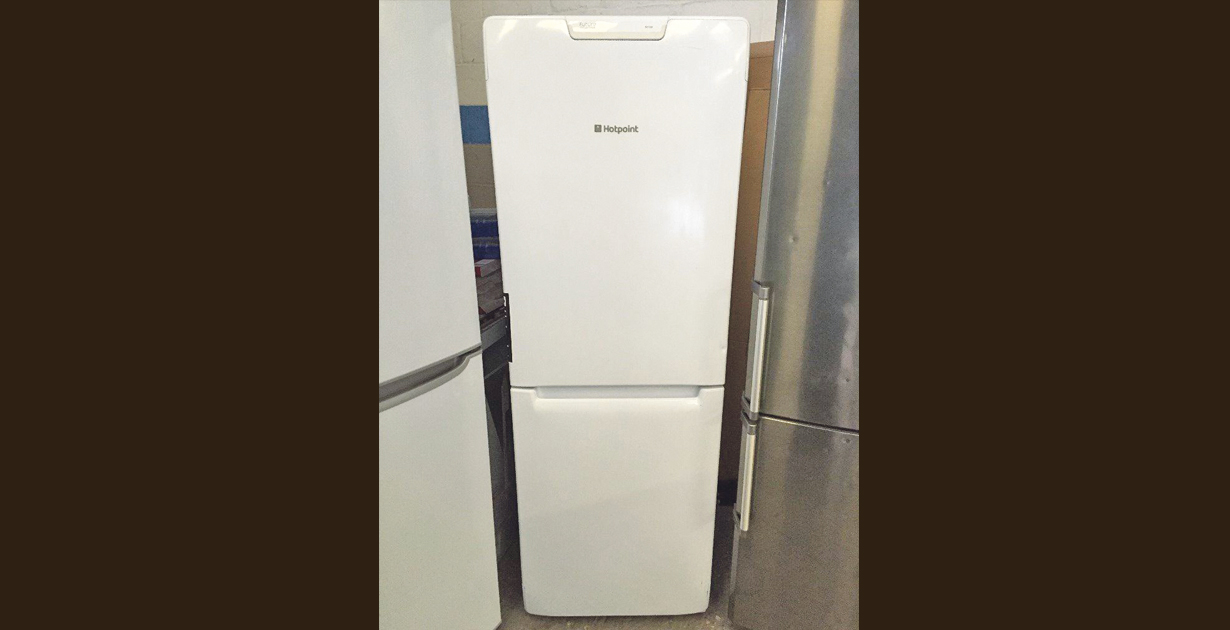
Puddles of water, a silent compressor and ice on the walls are all signs your fridge could be on its last legs. Find out what else might mean your fridge needs replacing.
It’s sometimes hard to know whether your fridge freezer just needs a bit of TLC or it’s on its way out. Here are some signs that it may be time to replace it with a newer model.
- My food keeps going off before the use-by date
You’ve just stocked your fridge full of food, but some things are going bad even though they’re still in date. That can’t be right, can it?
When this happens it’s a sure-fire sign your fridge isn’t working properly and may need repairing or replacing. It could mean a few things are wrong:
- The thermostat isn’t working properly
- Condenser coils are covered in dust
- The motor is working overtime as condenser coils are too hot
- Frost and ice is building up on my fridge walls
You’re used to having to defrost your freezer, even though it can be a massive pain. But now you’re getting a similar build-up of ice in your fridge – whoever heard of defrosting a fridge?
Your fridge should be cold, not freezing – so frost build-up inside it is a bad sign. If you’re often scraping ice from the walls, you might be better off replacing it.
- It’s not making any noise – but the light is still on
The hum of a refrigerator is a sound so familiar you completely forget about it. But what about when it actually does stop – even though the power (and light) is on? A totally silent fridge is bad news. A classic case of lights on, but no one’s home.
It may be that you have a broken compressor, even though less important parts of the fridge – such as the light – are still working.
Try turning the thermostat to its coldest setting – if this doesn’t kick-start the compressor, it might be dead. Another quick check is to:
- Defrost the fridge
- Switch it off for 24 hours
- Turn it back on and see if it makes a low humming noise again
If the fridge starts working, there might be a problem with its defrosting systems – which can be repaired.
- There’s a puddle of water around the fridge
A puddle of water around your fridge is bad news on many levels. It makes your floor slippery, leaves you with a mess to clean up and also could spell trouble for your fridge.
When it comes to your fridge it could mean a few things, such as:
- The door isn’t closing shut — check the seals aren’t worn out
- The drip pan is broken — it’s easy to check this by removing it and pouring water into it
- There’s lots of frost inside the fridge — defrost the fridge regularly, but if you’re doing it often you might need to replace it
- Hoses from the fridge to the drip pan might be loose, damaged or have been shifted out of place
- The freezer is cold, but the fridge is too warm
A fridge that’s not cold can’t really call itself a fridge, can it? After all, the food you put in there needs to be refrigerated.
But sometimes fridges can end up being warmer than they should be. Some fridges stay cool as cold air from the freezer is blown into the fridge compartment.
If the fridge is warm, it might mean the motor fan is broken and isn’t doing the job it’s supposed to. This could be replaced, or if this is too expensive, a new fridge might be a better option.
- There’s a banging noise
A healthy fridge will make a low humming noise when the compressor is working smoothly. But if you hear a loud knocking noise, or the humming stops and starts, it might be that the:
- Motor shaft or compressor flywheel are loose
- Compressor itself is faulty and might need replacing
- Condenser fan or condenser coils are faulty
- My energy bills are going up
If your bills are higher than usual, it could be a sign that kitchen appliances are using more energy than they should. Fridge freezers are the most likely offender, as they’re on all of the time.
It could be a sign that the thermostat, motor or compressor is on its last legs. If you’re running an old refrigerator, you’ll find the latest models are far more energy efficient – which will mean lower bills.









